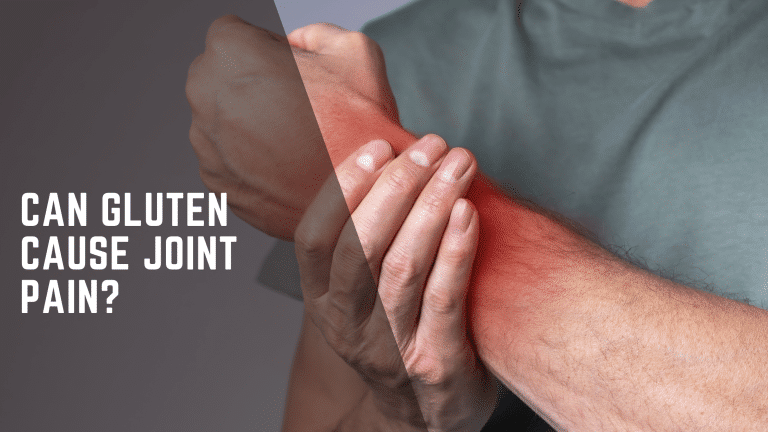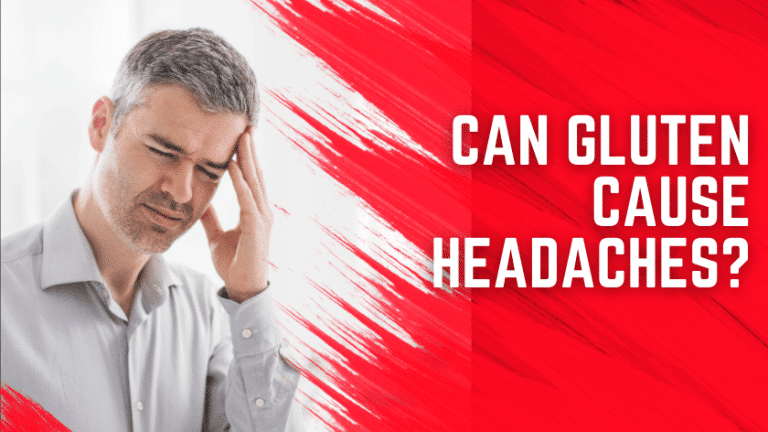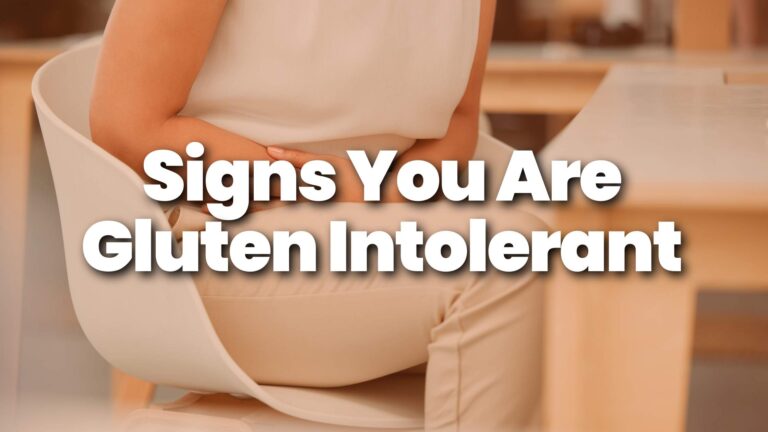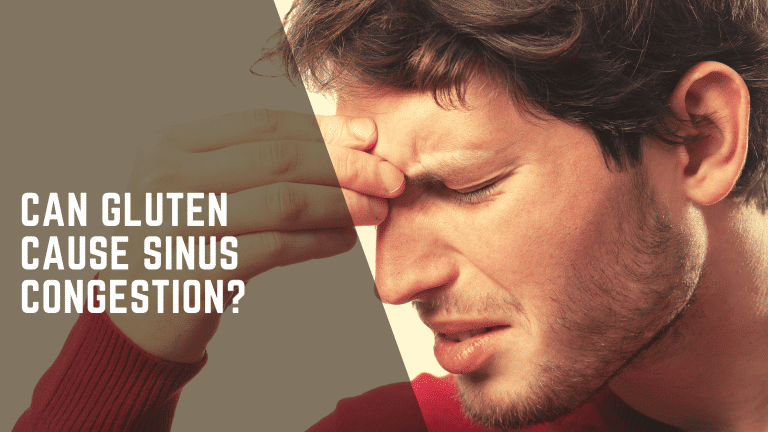What Does Gluten Do to Your Gut? – Surprising Effects on Digestion and Gut Health
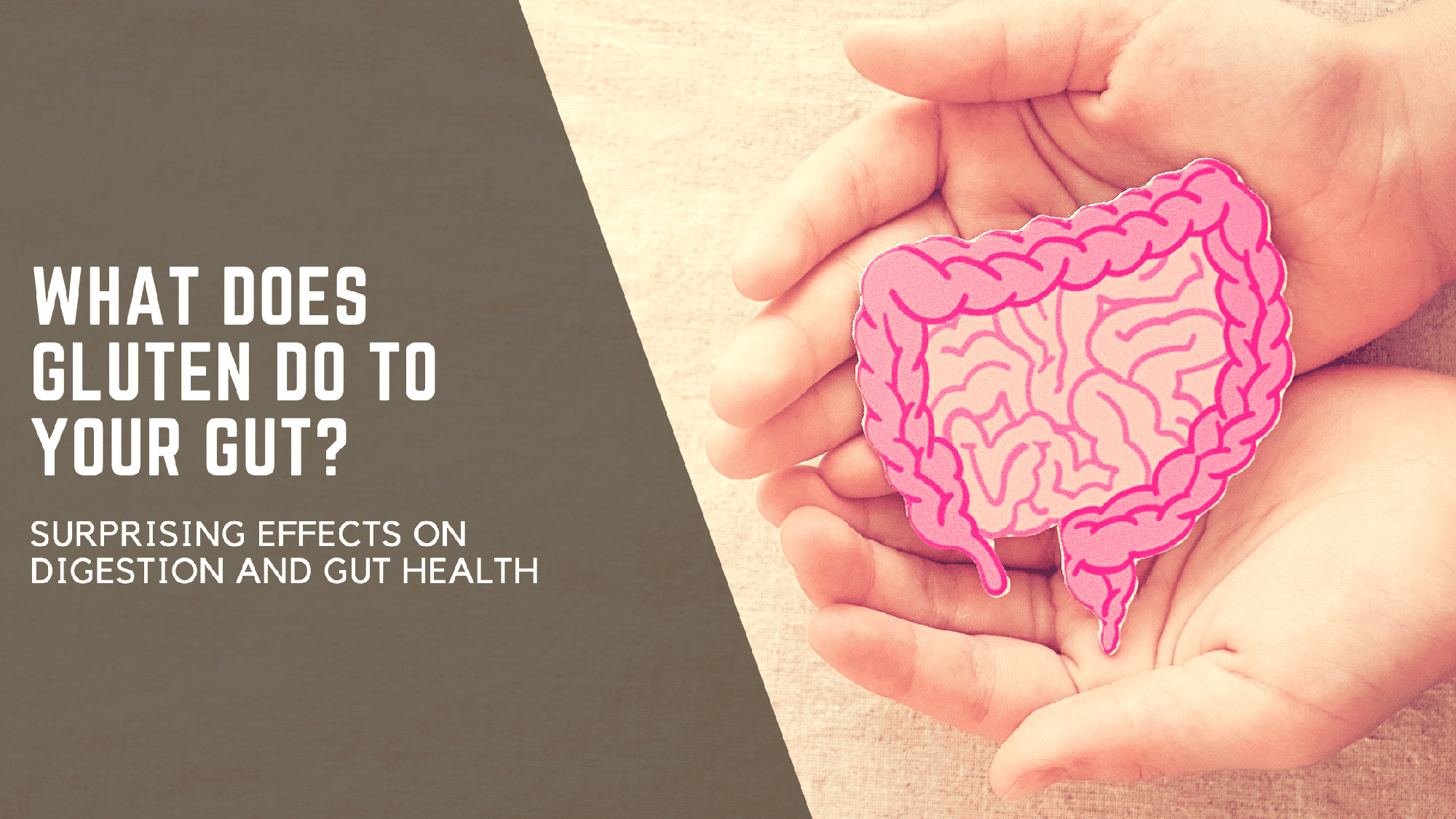
For those living with celiac disease, gluten is more than just a dietary nuisance — it can bring on uncomfortable physical symptoms and even cause serious damage if we don’t avoid it at all costs.
So, if you’re a celiac, gluten intolerant, or suspect that you might be, you may wonder – what does gluten do to your gut?
In short, gluten can damage the gut lining and cause inflammation in those with celiac disease or gluten intolerance. Digestive issues such as bloating, abdominal pain, and diarrhea are just the tip of the iceberg, with more serious long-term issues possible if you don’t avoid gluten.
Luckily, it doesn’t have to be bad news all around. With the proper lifestyle and dietary changes, those with celiac disease or gluten sensitivity can take control of their gut health and keep themselves feeling great.
Let’s examine why gluten affects digestion, what happens when you eat it, and how to keep your gut health in check.
Gluten: A Common, Controversial Component of Modern Diets
Gluten-free living is an interesting concept that many people don’t understand the full implications of. To some, excluding gluten from one’s diet is a passing trend.
However, for those with celiac disease, it’s no laughing matter – consuming even the smallest amount of gluten can wreak havoc on their lives.
For me, as a celiac, this has meant no more carefree days eating pizza or pancakes without carefully scanning and analyzing every label before each purchase.
Since my diagnosis in July 2021, I’ve had to become an expert in avoiding gluten and educating myself about its effects on my body.
The exclusion of gluten from my diet has admittedly been a huge adjustment over time, but it’s worth it to ensure I can still enjoy meals safely – something most people rarely have to think twice about.
Why Is Gut Health So Important?
Our gut might sometimes seem like an afterthought, but it’s undoubtedly one of the most integral parts of our body. It’s not just about digestion; your gut plays a role in virtually every aspect of your health, from energy levels to physical and mental well-being.
Taking care of the health of your gut can help with everything from digestion and bowel movements to weight control, immunity, nutrient absorption, and even mood.
When you improve your digestive health through specific diet and lifestyle changes, you don’t just feel better in the short term – you set yourself up for a lifetime of healthier living.
Research shows that taking care of your gut health can even help improve mental and psychological well-being [1]. So if you’re feeling down or anxious, focus on what you can do to nourish your gut and the rest of your body.
Having experienced anxiety even before my celiac diagnosis, I’m convinced that the dietary changes have made a noticeable difference in my mental state. So if you’re feeling overwhelmed or stressed, getting your gut health in check may be the key to a happier life.
The Effects of Gluten on Digestion and Gut Health
Going gluten-free may seem like a dietary fad for those unfamiliar with its effects, but it’s essential for gut health for those with celiac disease.
For many folks, myself included, a gluten-free diet has become a way of life, with even the slightest trace of gluten causing potentially serious health repercussions. Or, at the very least, uncomfortable and embarrassing symptoms, including bloating, abdominal pain, and diarrhea.
So, what is it about gluten specifically that can be so damaging for those with celiac disease and even those with non-celiac gluten sensitivity (NCGS)?
In the case of celiac disease, gluten triggers an inflammatory reaction in the small intestine, which can damage the gut lining and prevent us from properly absorbing important vitamins and minerals.
For those living with gluten sensitivity, the digestive system still struggles to process gluten which can lead to the same uncomfortable digestive issues mentioned earlier.
In either case, avoiding gluten is a necessity for maintaining gut health. Doing so is vital for more reasons than one and can even help with other chronic health issues such as fatigue, joint pain, skin irritation, headaches, and more.
By avoiding gluten altogether from our diets, individuals living with celiac disease or NCGS symptoms can finally get back to enjoying their favorite meals without worrying about digestive discomfort.
No one should have to suffer from painful and embarrassing digestive issues, so if you’re recently diagnosed or even suspect that you may have a gluten intolerance, speak with your doctor about removing gluten from your diet and begin taking back control of your health.
How to Heal Your Gut on a Gluten-Free Diet
Taking the plunge and committing to a gluten-free diet can be intimidating, but it doesn’t have to be overwhelming. Healing your gut on a gluten-free diet is all about making smart food choices that are both healthy and satisfying.
It’s not just about what you take out of your diet; it’s also about what you add in! For example, start incorporating high-fiber foods like legumes and nuts into your meals for an extra boost.
Raw fruits and veggies are also great for helping to repair your gut lining, as well as other beneficial probiotic-rich ingredients like kombucha or fermented foods.
Lastly, don’t forget that some supplement support may be needed – such things as digestive enzymes, probiotics, and adaptogenic herbs can help to achieve balanced digestion. With these tips in mind, you’ll be able to heal your gut and enjoy a nourishing gluten-free diet.
Protecting Your Gut: Tips on Gluten-Free Living
I learned the hard way that it’s essential always to read labels and ask questions when eating out. Not everyone knows that cross-contamination is a real issue, and even trace amounts of gluten can cause an adverse reaction for those with the same autoimmune condition I have.
The bottom line is that although living gluten-free can seem daunting, with the correct information and mindset, it doesn’t have to be overwhelming.
To protect your gut from the effects of gluten, here are a few tips for successful gluten-free living:
- Look for foods labeled “gluten-free” or “certified gluten-free”
- Be wary of cross-contamination when eating out or buying pre-made foods
- Ask questions about how dishes are prepared, even if they appear to be gluten-free
- Avoid processed and convenience foods that may contain hidden sources of gluten
- Be mindful of hidden sources of gluten, such as sauces and condiments
I’m no nutritionist or dietician, but if improved digestion means fewer trips to the bathroom throughout the day and a positive effect on gut health, then taking the above tips into account is more than worth it.
By becoming an advocate for your own health and learning to live a gluten-free lifestyle, you can regain control of your body and feel confident in your food choices again.
It may not be easy at first, but with time and patience, you’ll soon find that eating gluten-free doesn’t have to be such a chore.
What Does Gluten Do To Your Gut – A Summary
Many people across the globe consume gluten every day without so much as a second thought. But celiacs and those with NCGS know all too well the toll that just a few crumbs of gluten can take on their health.
For these individuals, removing gluten from their diet is essential for maintaining gut health and living symptom-free. As a diagnosed celiac, following a strict gluten-free diet is non-negotiable, and I leave no stone unturned when ensuring that my food is safe.
I will still never forget the feeling of relief that came over me when I finally stopped eating gluten, and I’m forever grateful for being able to take back control of my health, even if it means making compromises from time to time.
If you or someone you know is living with celiac disease, NCGS, or suspected gluten intolerance, I hope this article has provided the necessary information to help start a gluten-free journey.
Living without gluten doesn’t have to be so hard – it just takes a bit of knowledge and an understanding of what gluten does to your gut.
Here’s to taking back control and living a healthier, happier life. Cheers!
Disclaimer: This content is based on my personal experience as an individual diagnosed with celiac disease and IBS (Irritable Bowel Syndrome) who follows a strict gluten-free diet. This does not constitute medical advice. Please consult a medical professional, nutritionist, or qualified dietitian for personalized, professional advice.

